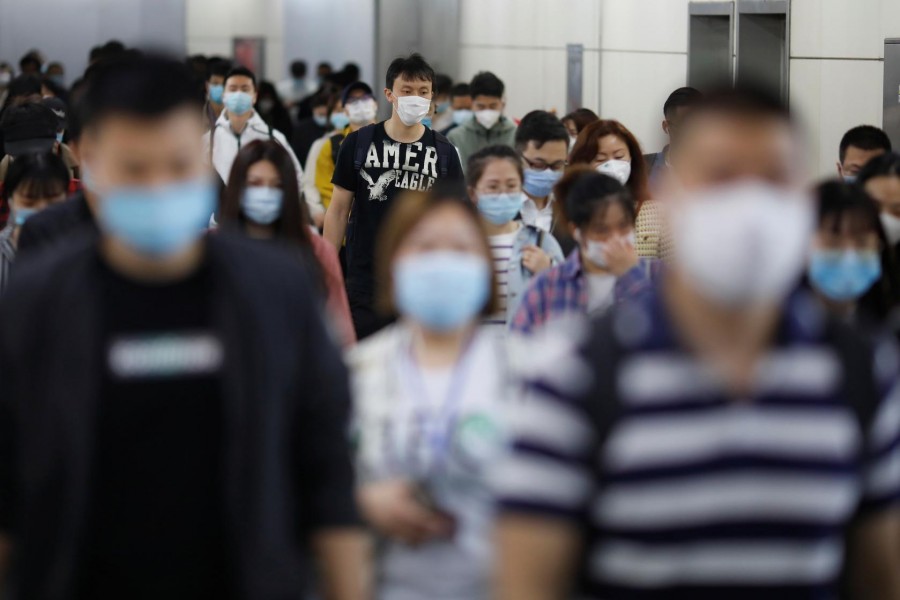A fresh Covid outbreak in China has spread to more locations, raising concerns in local media over the country's vulnerability to the highly contagious Delta variant.
More than 300 cases have been detected within a span of 10 days.
Local headlines have been dominated by news on the outbreak, and the country's top respiratory diseases specialist has reportedly expressed grave concern.
The government has imposed fresh travel restrictions and is testing millions.
It is unclear how many in China are fully vaccinated, although authorities say more than 1.6 billion doses have been administered so far, reports the BBC.
A total of 15 provinces and municipalities have now confirmed cases, of which 12 are connected to an outbreak that began in Nanjing in China's eastern Jiangsu province. Authorities have attributed the spread to the Delta variant and the domestic tourist season.
Although case numbers are considerably lower than other places, it is considered the largest outbreak in months in China, a country that was largely successful in controlling the virus within its borders last year.
Cases first emerged in July in Nanjing airport, among workers who had cleaned a plane that arrived from Russia.
Authorities promptly tested 9.2 million residents of Nanjing and imposed lockdown on hundreds of thousands of people.
But over the weekend the spotlight turned to popular tourist destination Zhangjiajie in central Hunan province, where many of the latest cases have emerged. Travellers from Nanjing were thought to have visited the city recently.
Health officials have zeroed in on a theatre in Zhangjiajie, and are now trying to track down about 5,000 people who attended performances and then travelled back to their home cities.
One performance alone had hosted about 2,000 people, according to reports.
All attractions in Zhangjiajie have been closed and tourists are being asked to take a Covid test before leaving the city, local media reported.
"Zhangjiajie has now become the new ground zero for China's epidemic spread," Zhong Nanshan, China's leading respiratory disease expert, told reporters.
The new outbreak has reached Beijing too, with the city reporting several locally transmitted infections.
All of Beijing's air, bus and travel links to areas with positive cases have been cut. All tourists have also been banned from entering the capital, and officials are only allowing "essential travellers" with negative Covid tests to enter.
The virus has also reached Wuhan, the Chinese city where Covid-19 first emerged, with seven people testing positive for the virus. According to Chinese state media, the city had seen zero locally transmitted infections since June 2020.
China is also battling a rise in cases in Zhengzhou in northern Henan province, which saw devastating floods just last month, as well as Hainan island.
The Global Times newspaper has called the outbreak the "most serious since Wuhan", and in a separate editorial criticised "glaring loopholes" in Covid prevention measures.
"It is absolutely worrying if a single flaw can affect many provinces and regions across the country... it shows that our systematic progress in fighting the epidemic needs to be strengthened," it said.
The outbreak has raised concerns about vaccines, as it emerged that some of those infected had been vaccinated.
Shao Yiming, a researcher with China's Centre for Disease Control and Prevention, told reporters on Saturday that breakthrough infections in vaccinated people "are expected".
Sinovac and Sinopharm's vaccines - two of the most commonly used jabs in China - have been shown to be 50 per cent to 79 per cent effective in preventing symptomatic Covid infection in clinical trials around the world, but are highly effective in preventing hospitalisations or deaths.


